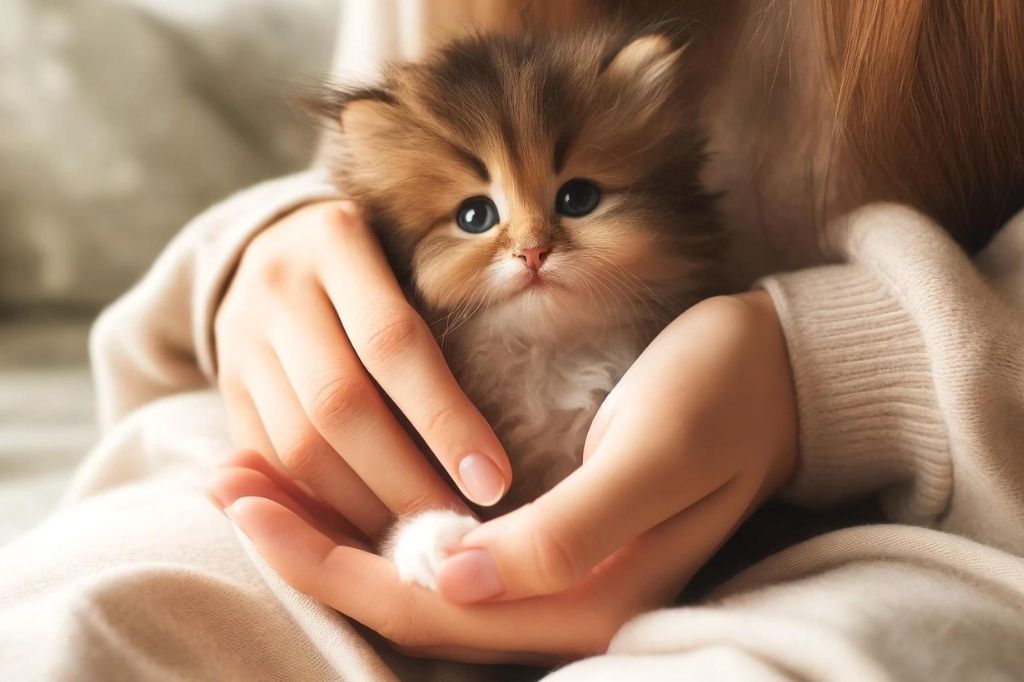If you’ve recently adopted a kitten, you might have encountered a curious and somewhat adorable behavior: your kitten attempting to nurse on you. This might involve suckling on parts of your clothing, skin, or even earlobes. You may find yourself wondering, why is my kitten trying to nurse on me? While this behavior can seem baffling at first, it’s fairly common among young cats and can be explained by a mix of psychological and developmental factors. In this blog post, we’ll delve into the reasons behind this kitten behavior, what it means, and how you can manage it effectively.
Comfort and Security
The primary reason kittens nurse on objects or people is to seek comfort and security. This behavior is typically observed in very young kittens, but can also be seen in older cats under certain circumstances. When kittens are born, they are entirely dependent on their mother for nutrition and comfort. Nursing not only provides them with necessary sustenance but also a sense of safety and affection.
Factors contributing to this behavior include:
- Early weaning: Kittens weaned too early from their mothers may develop this behavior as a way to replicate the comforting aspect of nursing.
- Seeking comfort: In new or stressful environments, kittens may revert to nursing behaviors as a self-soothing technique.
- Association with warmth and heartbeat: Just as they snuggled with their mother and littermates, kittens may associate their body heat and heartbeat with the comfort and security they felt when nursing.
While this behavior is generally harmless, it’s important to ensure that your kitten develops appropriate coping strategies. Offering a warm blanket or a soft stuffed animal can provide an alternative source of comfort.
Developmental Implications
Nursing behavior in kittens is not just about seeking comfort; it’s also a part of their developmental process. During their early life stages, kittens learn and develop through their senses — taste, touch, and smell play critical roles. This period is crucial for developing their future behavior and social skills.
Considerations for developmental impact:
- Social learning: Kittens learn behaviors from their environment. If a kitten was separated from its mother too early, it might not have learned appropriate social cues and behaviors.
- Oral fixation: Like human infants, kittens go through a phase where they explore the world through their mouths, which can include suckling behaviors.
- Comfort-seeking behavior: Repeated nursing on a human or object can be a sign that the kitten is looking for more ways to feel secure and loved.
Encouraging play and interaction with appropriate toys can help channel your kitten’s energy and curiosity in healthy ways, fostering proper development.
Addressing the Behavior
While nursing on a human is typically harmless and can even be a sign of affection and trust, it’s understandable to want to discourage this behavior for various reasons, such as comfort or to prevent dependency. Managing this behavior involves providing alternatives and slowly conditioning your kitten to seek comfort elsewhere.
Strategies to modify nursing behavior:
- Provide alternatives: Offer items with a similar texture to the skin, like plush toys or a fleece blanket, to your kitten when it attempts to nurse on you.
- Distraction: When your kitten starts nursing, gently redirect its behavior towards a more appropriate activity, such as playing with a toy.
- Positive reinforcement: Reward your kitten with treats and affection when it engages with toys or settles down without nursing.
It’s essential to be patient and consistent while addressing this behavior. Abrupt or negative responses can cause stress and may exacerbate the behavior.
When to Consult a Veterinarian?
In most cases, a kitten trying to nurse a human is normal and not indicative of a health issue. However, if the behavior is excessive or accompanied by signs of distress, it may be necessary to consult with a veterinarian. This is particularly important if the kitten is not eating properly, seems lethargic, or shows other signs of illness.
A veterinarian can assess whether there are underlying health issues contributing to the behavior and can offer guidance on how to ensure your kitten grows into a healthy and well-adjusted cat.
In conclusion, a kitten nursing on you is generally a sign that it is seeking comfort and security. By understanding the reasons behind this behavior and knowing how to manage it effectively, you can help your kitten transition to more appropriate coping mechanisms and deepen the bond between you.

